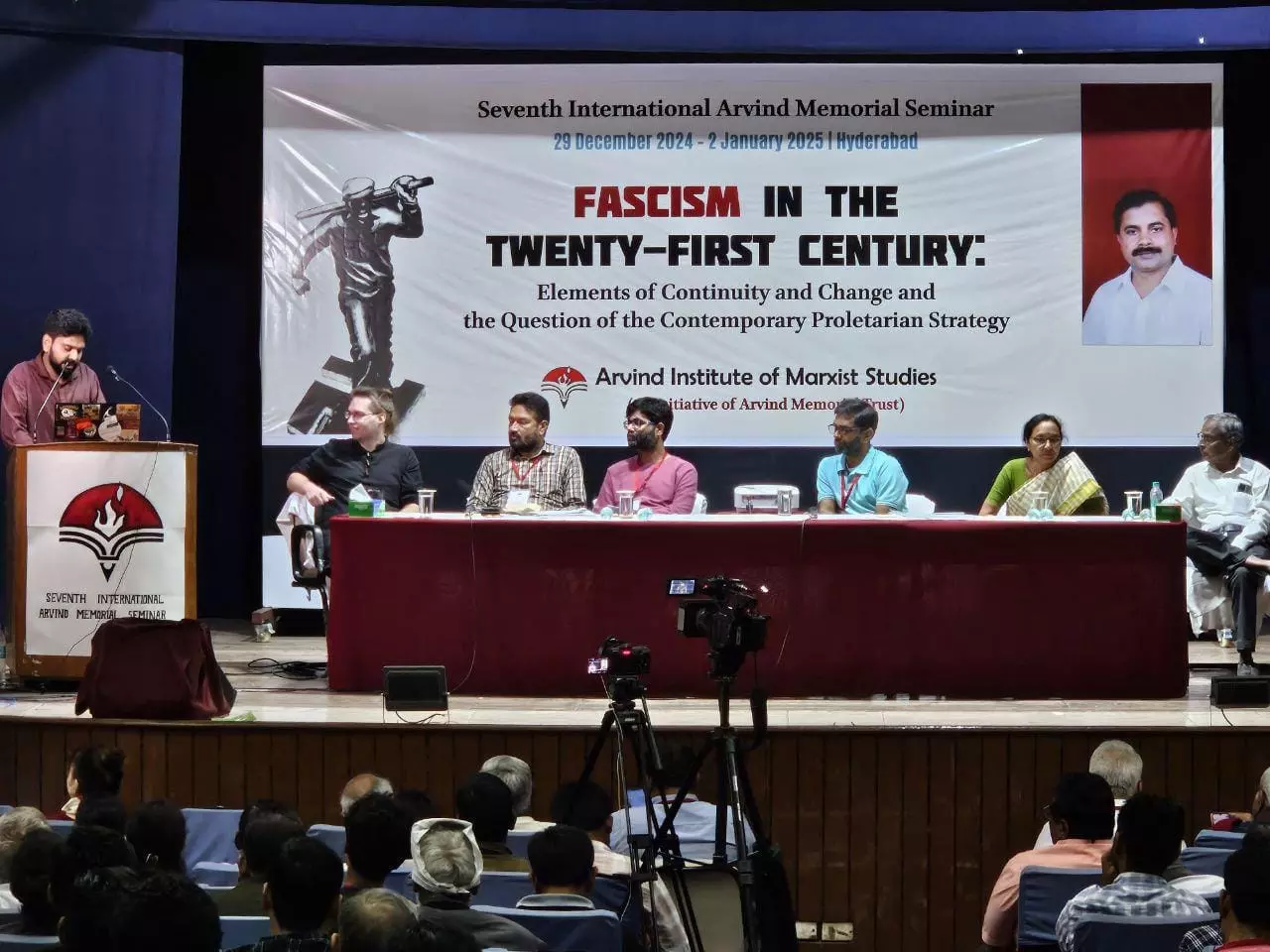Social alienation makes fascism appeal to masses

Hyderabad: Nicolai Messerschmidt, a German researcher, on Wednesday analysed how fascism appeals to the masses and linked it to social alienation, authoritarian personalities, and mass psychology.
Drawing connections between the rise of fascism in 20th-century Europe and the contemporary political climate, the paper highlighted how these theories can inform current anti-fascist movements.
He presented his paper on day four of the Arvind Memorial Seminar on ‘Fascism in the 21st century’ organised by Arvind Institute of Marxist Studies. The event saw insightful discussions on various papers presented by scholars to understand the fascist forces across the world and devise the proletarian strategy against fascism.
He referred to the Frankfurt School of Philosophy, particularly the critical theorists like Theodor Adorno, Erich Fromm, and Max Horkheimer.
After his paper, an intense critical discussion was followed in which the Marxist participants mentioned that undermining causality and universality between visible factors of fascism will only lead to a reactionary theory of fascism.
At noon, Sunny Singh, a political activist from New Delhi, presented ‘Understanding Fascism and Strategies for its Resistance within the Indian Communist Movement: A Critical Analysis’.
This paper explored the historical trajectory of anti-fascist strategies adopted by Indian communists, drawing from key moments in India's freedom struggle and post-independence political struggles. Special attention was paid to the role of Communist parties in organising resistance and building alliances against authoritarian forces, their historical blunders, and their role in fascination of Indian society.
In the second half, Jiselle Hannah, Political Activist and Secretary of Australia Asia Worker Links (AAWL), presented, 'The Rise of the alt-right in Australia and How We’re Fighting Back'. The paper provided an in-depth analysis of the socio-political conditions enabling the growth of far-right movements and the collective efforts to resist it.
The discussions ensued on trends and tendencies within the Indian communist movement and the urgent need for building a revolutionary working class party that can lead a decisive struggle to sound the death knell for fascism. A critical discussion pointing out the faults in Prabhat Patnaik's positions on political economy also took place.

